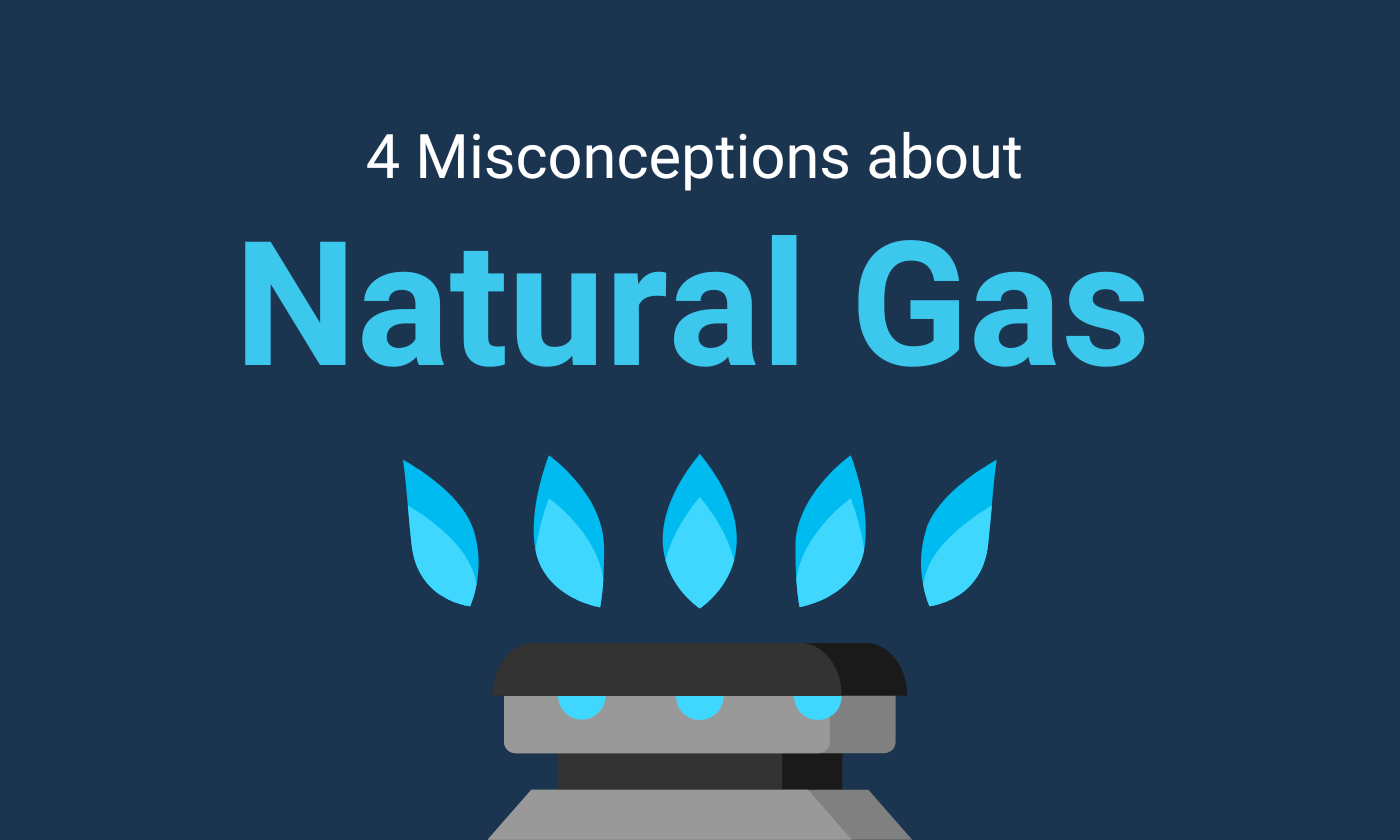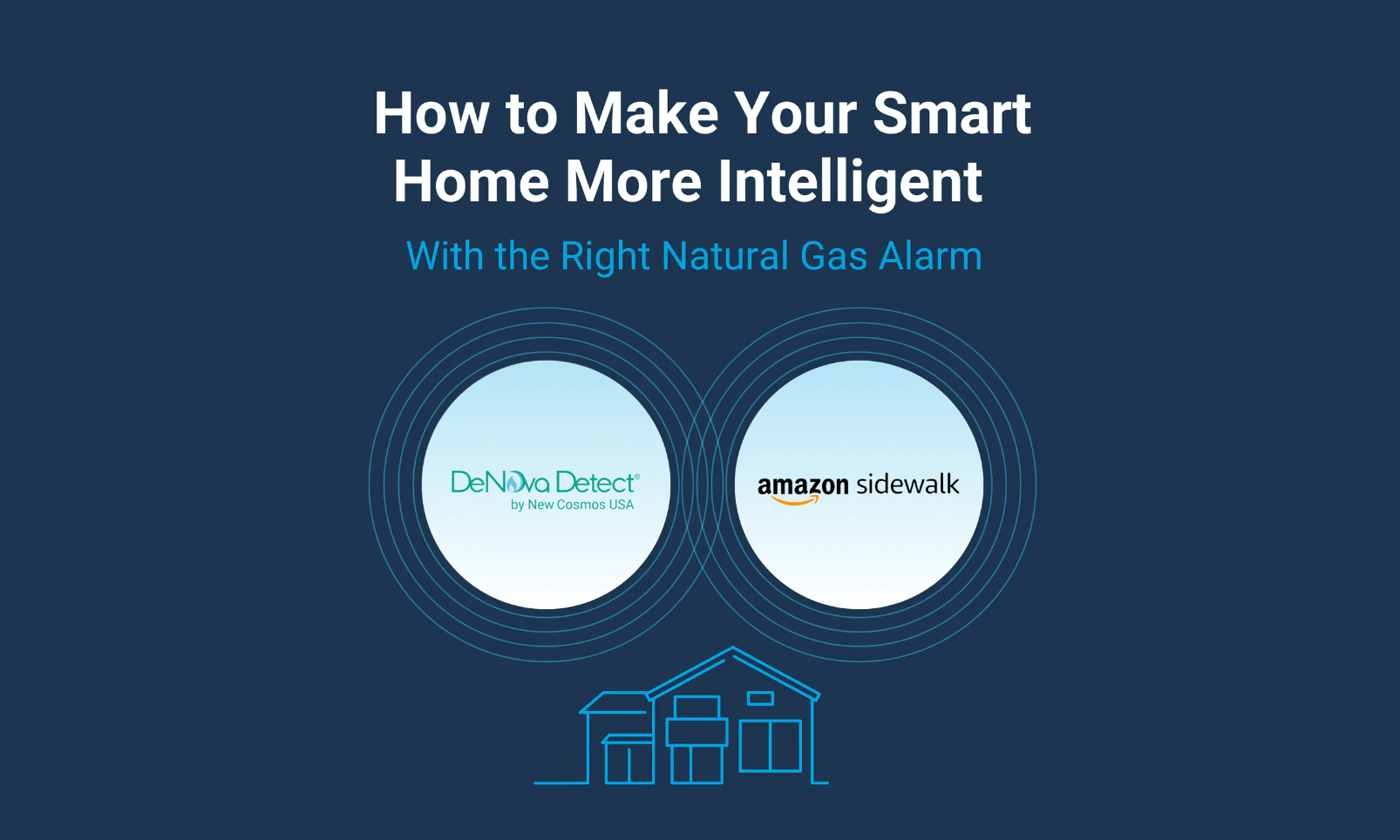No one should make assumptions when their safety and the safety of others are on the line. When it comes to natural gas, the public needs to pay more attention to the potential hazard this fossil fuel poses. Natural gas is used to fuel our cooking, heating transport, and power generation—but it can bring about serious risks if not used and maintained correctly.
That’s why natural gas alarm detectors are must-haves to add a secondary layer of protection to your daily life and community.
Unfortunately, frequent misconceptions about natural gas and the devices designed to detect it can give many people the false confidence that they know what they’re doing—a dangerous chance to take. Misconceptions become problematic when those ideas are gradually accepted as truth. Not only do gas detectors help identify gas leaks and deter the acceptance of misconceptions, but they also help prevent waste, as gas leaks can lead to higher utility bills and wasted energy. If people are not careful and do not conduct proper research for a better understanding of how natural gas alarm detectors can benefit their property, they can easily succumb to misinformation.
There are essential safety facts about natural gas detectors people need to remember and use to disprove misconceptions about their protection. Here are our top four:
Myth #1 A single natural gas alarm is sufficient for an entire home/property.
The average home has more than one source of natural gas and uses 196 cubic feet of natural gas on a daily basis. While organically colorless and odorless, natural gas is mixed with a non-toxic odorant—the rotten egg smell—but one natural gas detector is not enough to cover an entire home, especially if the house is large or has multiple floors.
Natural gas is lighter than air, so it tends to rise and accumulate in home's ceiling or upper floors. If the only alarm is in the lower half of the house, it may not be able to detect natural gas leaks in all areas, particularly in rooms that are far away from the alarm or in basements and crawl spaces. Additionally, if the alarm malfunctions or the battery dies, no backup alarm will alert you of a potential gas leak.
Installing multiple natural gas alarms throughout a house and on every floor is recommended, even more so for people who have lost or have an impaired sense of smell which has become a bigger concern after COVID-19. This can help to ensure that any gas leaks are detected promptly, and homeowners can take that appropriate action to address the situation before it becomes dangerous.
Myth #2 Natural gas alarms are the same thing as carbon monoxide alarms.
While both carbon monoxide and natural gas alarms are used to detect potential hazards in the home, they are used differently for various gas detection. Natural gas is highly flammable and can lead to fires and explosions. Carbon monoxide is a by-product produced when burning natural gas utilities in an enclosed space. They are very different.
While exposure to low levels of natural gas will not be harmful to your health, long-term exposure can cause significant damage. As mentioned above, natural gas is organically colorless and odorless, but emits a rotten egg smell when mixed with a non-toxic odorant. Conversely, carbon monoxide is colorless, odorless, and tasteless, making it difficult to detect without an alarm. Known as the silent killer, exposure to high levels can be poisonous to humans and even deadly.
As carbon monoxide is an entirely different composition from natural gas, carbon monoxide detectors do not detect natural gas leaks and vice versa and this is a very common misconception. Because they have disparate properties, they require different types of alarms to detect them. Therefore, it is recommended to have both alarms installed in your home to protect you from both types of hazards.
Myth #3 You only need a natural gas alarm if you have a gas stove.
Natural gas has many more applications that go beyond cooking. Therefore, natural gas detectors are more valuable in different areas around the house than just in the kitchen. So, while you need a natural gas alarm in the house due to a gas stove, multiple detectors are recommended for homes with gas dryers, gas water heaters, gas fireplaces, or gas furnaces.
It is also recommended that natural gas alarms be installed in other areas where gas leaks may occur, such as near gas lines or basements. If a gas leak occurs, it can lead to a buildup of gas that can be explosive or can cause carbon monoxide poisoning. Installing a natural gas alarm can help to detect gas leaks early, allowing homeowners to take appropriate action to address the situation.
To ensure maximum safety, it is best practice to install an alarm near bedrooms and other areas where people spend the most time.
Related post: How to Make Your Smart Home More Intelligent With the Right Natural Gas Alarm
Myth #4 All natural gas alarms are created equal.
Not all natural gas detectors are created equal. Many are not approved to meet certain new industry standards, such as UL1484, requiring natural gas alarms to operate at a lower explosion limit (LEL) to detect dangerous levels of gas sooner at 10% LEL vs. 25% LEL. While natural gas alarms should be operating at a 10% LEL, most operate at a 25% LEL which is more dangerous, is antiquated technology and detects leaks much later.
The devil is really in the details when it comes down to comparing competitive gas detectors for your home—you definitely want to get the safest product on the market when it comes to protecting your life and property. When investing an alarm, consider the sensor life, warranty, if your alarm can operate as a stand-alone battery-operated alarm near the ceiling and evaluate the total cost of ownership. Unreliable sensors and poorly constructed detectors can cause unnecessary downtime and shutdowns, costing you more than ever imagined. Faster-responding gas sensors at 10% LEL not only alert you more quickly to potentially hazardous situations, but also save you gas and labor time with every calibration and test.
Gas appliances and services are not going away anytime soon. It’s up to us to really be highly selective to be safe and secure and not jump at purchasing the cheapest alarm. It's important to recognize that while natural gas is a valuable energy source and the most important thing is to protect yourself. By understanding the risks, doing the research to debunk misconceptions, you can feel confident investing in the right alarm to ensure a natural gas ecosystem of safety.





Leave a comment
This site is protected by hCaptcha and the hCaptcha Privacy Policy and Terms of Service apply.